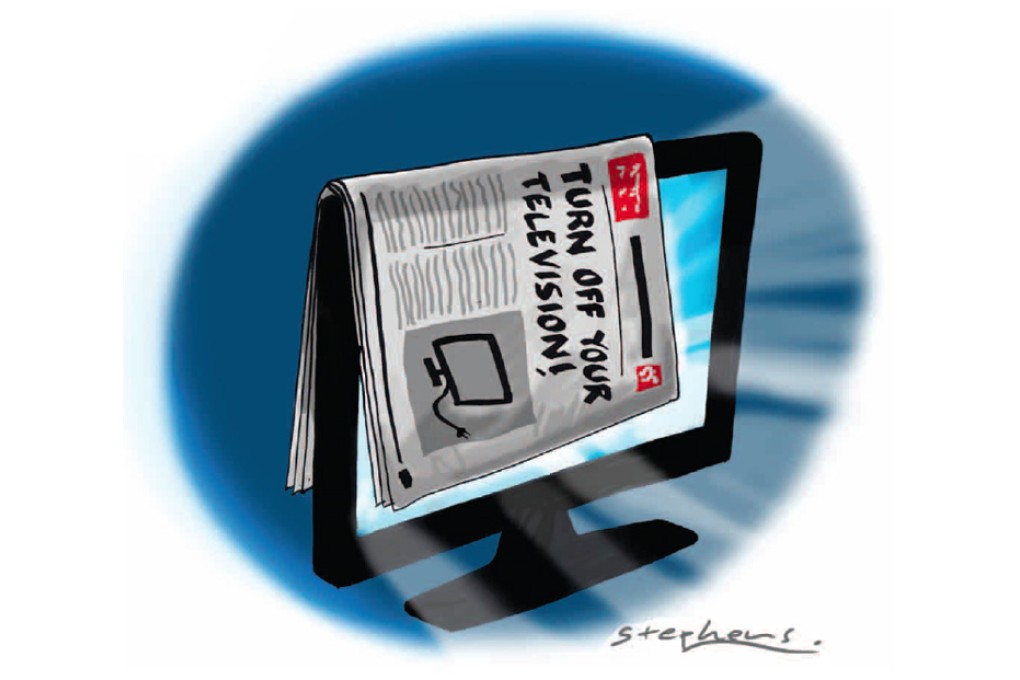What price freedom of expression?
Robert Chua says the TV licence row shows that denigrating others through self-interest undermines the work of those taking tough decisions and abuses freedom of expression

Let's not misuse our right to freedom of expression to protest against or attack others purely for self-interest; we need to think of the people's interest first. Clearly, the dispute between TVB and Next Media is not about "freedom of the press" or "freedom of expression". It is merely a company's decision against an unfriendly rival that is threatening its business. In this case, it was telling viewers to switch off their television sets in order to reduce a show's ratings without reasonable cause.
To campaign for a boycott of TVB's 46th anniversary gala show was clearly wrong. If the campaign had called for viewers to switch off if they witnessed a repeat of TVB's "gross", "degrading" and "tasteless" show the previous year, then it would have been a fair call.
But to call for a boycott to cut the stations ratings points cannot really be justified, especially as turning off the TV would also hurt other stations' viewing figures. Imagine a campaign on TV calling for people to stop reading newspapers. How would the print media react to that?
TV and newspapers are governed by different sets of rules. Even free-to-air TV and cable TV have different rules; the content of many programmes may be acceptable on cable, but is not allowed under free-to-air regulations. And, while the press can generally write what they like, a TV station cannot use its airtime to broadcast a programme defending itself.
There was widespread criticism of a recent programme produced by TVB about HKTV and the free-to-air TV licensing issue. But if the print media had produced a similar commentary, it would not have stirred up any significant complaints. Therefore, under such circumstances, the TVB decision to ban Next Media from its press conferences and events because of "biased reports" on the TV licence issue doesn't violate press freedom. What other choice does the broadcaster have?
As a Singaporean who has lived in Hong Kong for over 46 years, people often tell me Singapore is controlled by a dictator, Lee Kuan Yew. They claim it is a police state, that there is no freedom of expression, and that everything is controlled by the government. Yet, despite such negative views, Singapore has become one of the wealthiest nations in Asia governed, or should I say "managed", very well by its founding father. We must not forget that Singapore is a tiny island with no natural resources, only its people, to rely on. Nor does it have the support that Hong Kong enjoys from the mainland. Yet Singapore is very successful. Most people are behind the government, despite discontentment with some policies. This is understandable; you can't please everyone, all the time - not even in a family.
